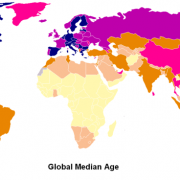Accessing the Public Sphere Through Mobile: Haiti
During the 1970s, missionaries would walk around the towns in Haiti distributing radios to spread the message of the church. Haitians would accept them freely—not for the religious messages, but so they could tune into the Creole news services. Forty years later, a new wireless tool allows them to access news but with one fundamental difference: now they can participate in the conversation through their mobile phone.
Last week during World Press Freedom Day in Washington D.C., the sentiment that mobile phones serve as a catalyst for a two way flow of information between governments and citizens in the developing world was continuously echoed.
For the 77% of the world’s population who own cell phones, it is like a modern printing press in the palm of their hands.
Michèle Montas, Senior Advisor to the Special Representative of the Secretary-General to Haiti, United Nations Stabilization Mission, Haiti, observed that the widespread availability of cell phones began with a heavy push from the private sector but has resulted with an increased demand from the people. “We could find them (mobiles) in the countryside, in the slums of Port au Prince, in the hands of a street market woman, in the hands of a small shop owner.” she commented.
This extensive accessibility paves the way for citizens to use mobile phones as a tool to contribute information and express their opinions to the public sphere.
Ms. Montas alluded that although cell phones aided in humanitarian assistance after the earthquakes, mobile phones have also altered the way Haitians can now lend their relevant perspectives, notably by calling into radio talk shows they play an active role in public discourse.
“There has been an explosion of meshing of media, of journalists, and of people that just want to speak out,” she stated, “If you gave them a microphone they would just speak out on the microphone, today they would do it on a cell phone.”
Mobile phones are dramatically changing the landscape of how citizens can actively access and contribute information to the public sphere; they boost the morale of citizens in societies where the voiceless can finally be heard by the majority and inform governments of what their citizens need.
Please view the video of Ms. Montas during the past World Press Freedom Day on the Panel “Accessing the Digit Benefit”:






































